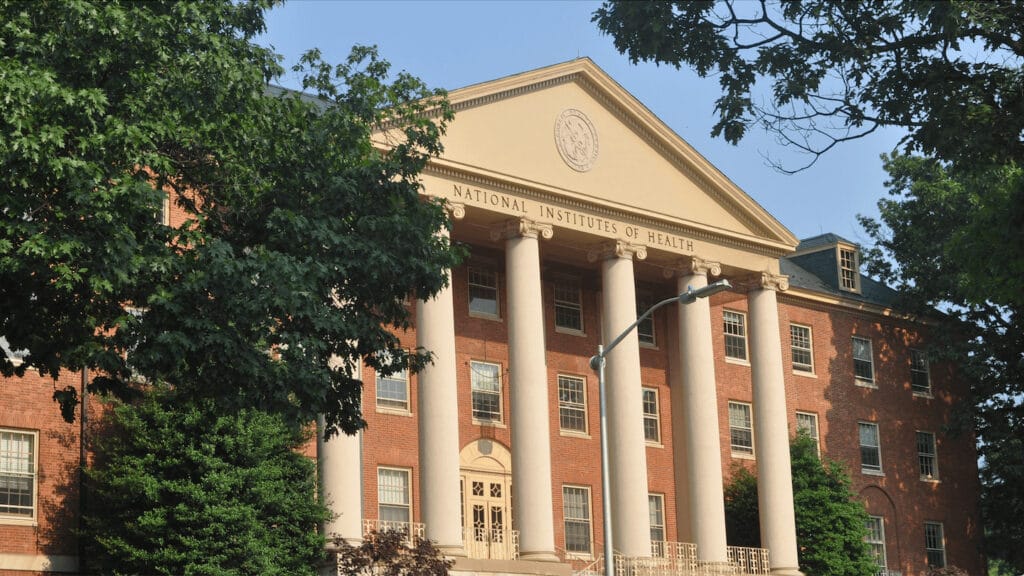
A fiscal year 2024 appropriations package signed Saturday by President Biden will increase funding by $100 million for research into Alzheimer’s and other dementias at the National Institutes of Health and allocate $34 million to fund and continue to implement the BOLD Infrastructure for Alzheimer’s Act.
The $1.2 trillion package included the six remaining FY24 spending bills, with the dementia research funding included as part of the bill to fund the Labor, Health and Human Services, and Education departments. The US Department of Health and Human Services, of which the NIH is a part, will receive a total of $117 billion, and the NIH will receive a total of almost $49 billion, CNN reported. A separate package of six bills funding other parts of government was passed earlier this month.
The latest package passed in the House of Representatives 286-134 on Friday and then passed in the Senate by 74-24 in the wee hours of Saturday morning — the bills had supporters and opponents among both Democrats and Republicans — before being signed by the president later on Saturday.
“Because of this additional $100 million in Alzheimer’s research funding, scientists will be able to drive innovation and accelerate improvements in care, treatment and prevention for Alzheimer’s and all other dementia,” Robert Egge, the Alzheimer’s Association’s chief public policy officer and president of the association’s advocacy affiliate, the Alzheimer’s Impact Movement, said in a statement on Thursday after Congress had agreed on but had not yet voted on the package.
Instrumental in securing the research funding, according to the groups, were Sens. Patty Murray (D-WA), chair of the Senate Appropriations Committee; Susan Collins (R-ME), vice chair of the committee; Tammy Baldwin (D-WI), chair of the Appropriations Subcommittee on Labor, Health and Human Services, Education, and Related Agencies; Shelley Moore Capito (R-WV), ranking member of the subcommittee; as well as Reps. Kay Granger (R-TX), chair of the House Appropriations Committee; Rosa DeLauro (D-CT), ranking member of the committee; and Robert Aderholt (R-AL), chair of the Appropriations Subcommittee on Labor, Health & Human Services, and Education.
“This announcement demonstrates a continued, bipartisan commitment to advancing Alzheimer’s and dementia research and public health,” the groups said, noting that with the increase, annual Alzheimer’s and dementia-related research funding from the federal government to the NIH now will total as much as $3.8 billion.
The $100 million increase in funding for dementia research is part of a total $300 million increase to the NIH for biomedical research, which also includes funding for research into neurological disorders and stroke, diabetes, palliative care, cancer and mental health, according to an Appropriations Committee summary. Additionally, the bill contains funding for services and supports for older Americans and individuals with disabilities, the CURES Act, the BRAIN Initiative and the All of Us precision medicine initiative, among other provisions, according to Capito.
Regarding the appropriations package’s $34 million to fund the BOLD Act, the groups said that the BOLD Act expires soon but that progress is being made to advance the BOLD Infrastructure for Alzheimer’s Reauthorization Act, which would reauthorize the law.
The original BOLD Act passed with bipartisan support in December 2018. The reauthorization bill “represents an effort to strengthen our nation’s response to Alzheimer’s with a specific focus on increasing public awareness of the disease. It provides funding for state, local and tribal public health departments to support the implementation of interventions that center on reducing risks and increasing early detection and diagnosis of the disease,” USAgainstAlzheimer’s said.

